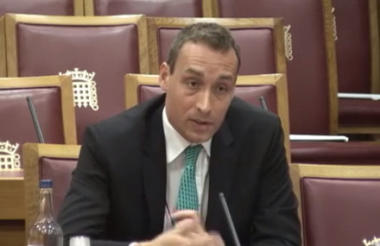Google’s public policy manager said charities need to stop assuming that that digital will cost them money and realise that it is fundamental to achieving their missions.
David Skelton, public policy and government relations manager at Google, was giving evidence to he House of Lords Select Committee on Charities yesterday. The committee is conducting an investigation into the state of the charity sector.
He stressed that “digital doesn’t have to be expensive”.
“The fundamental point is that digital is not just a nice to have it is a fundamental way to help them achieve their core mission,” he said.
He outlined the support charities can get from Google, such as its adwords programme which provides $10,000 worth to charities per month, and employee volunteering programmes.
Skelton added that: “It is important to overcome that psychological barrier that some charities have that digital equals expensive.”
‘Start-up mentality’
Skelton said that through its grants programme Google sought to fund charities in a similar way that technology start-ups get funding.
“We fund in a similar way that people would be funding tech start-ups,” he said. “By milestones rather than writing a single cheque”.
Twitter: ‘Social media levels the playing field’
Nick Pickles, UK head of policy at Twitter, also gave evidence to the committee.
He said described social media as an “opportunity to communicate with the world without intermediaries” such as newspapers, television executives, or paying for advertising.
This means it “levels the playing field” between large and small organisations.
He said that some smaller organisations were actually better at adopting newer technology than “larger organisations that are more hierarchical with staff working in the same way for a long time”.
This has led, he thinks, to the formation of more “micro-charities”. And said it is important to think about that “long tail” of charities and not just the big brands.
He also said that social media and digital could help charities be more transparent.
“You don’t have to wait for the monthly newsletter to come,” he said as “you can see that [what is going on] in real-time.”









